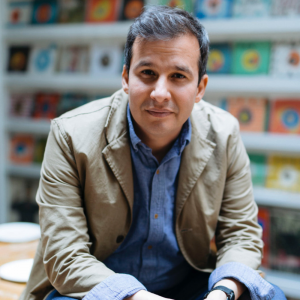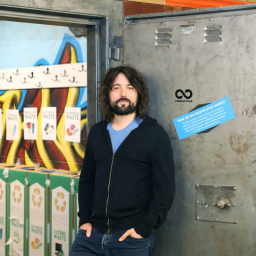How is the Circular Economy and SDG 2: Zero Hunger Linked?
Steve Butterworth (SB): Ensuring everyone in the world has access to a nutritious diet in a sustainable way is one of the greatest challenges we face. Global hunger isn’t caused by a lack of food – the world produces more than enough food to nourish everyone, but nearly one-third of all food produced each year is waste or spoiled. As a society, we must find ways to become more respectful of the resources that we produce, especially given the vast amounts of land, energy and water that are required for food production. Food waste is subsequently one of the largest producers of CO2, which is heartbreaking. It’s absolutely critical that we find ways to channel food that we aren’t currently consuming to feed people.
How can the food industry accelerate the implementation of circular and regenerative practices?
SB: Change will be driven by a combination of factors across the entire food chain and there’s some great examples of forward thinking initiatives from different parts of the industry. For instance, we’ve seen bread, one of the highest food waste categories, repurposed after the end of its shelf life as an ingredient in beer or turned into frozen garlic bread. More widely, the laws that govern the food industry need to be reviewed in order to really accelerate waste reduction. Food safety is of course paramount, but a new legal framework that is fit for the conditions in which the industry is now operating is vital if we are to remove barriers and hit our SDG targets.
What are the main causes of food waste right now?
SB: The greatest amount of waste is created in our homes, with 70% of the UK’s total food waste estimated to be coming from households. The reasons for this are complex, but undoubtedly better access to resources that help consumers understand the value of food and impact of waste should be seen as an integral part of the solution.
However, food is lost or wasted for a variety of reasons long before it gets to the retail environment and point of purchase: processing problems, overproduction and unstable markets create huge problems. Right now, extra challenges caused by the pandemic and Brexit are creating issues in the UK for production and supply chain, including a lack of labour to pick and process produce.
 Steve Butterworth, CEO, Neighbourly
Steve Butterworth, CEO, Neighbourly
How can circular business models influence consumer behaviour that results in food waste reduction?
SB: The industry has a shared responsibility when it comes to consumer education about the impact of food waste on climate and the value of food, as well as driving innovations and engagement with the local sharing economy. Our buying behaviours, levels of education around food handling and most importantly our respect for food has changed dramatically over the years and there’s a huge opportunity to re-educate, particularly within the younger generations. Confusion over labels and safety also contribute to food waste both at stores and in homes and this is an area where businesses can have significant influence.
How can businesses demonstrate the impact that engaging in volunteering activities can have, particularly when addressing food insecurity?
SB: The core responsibility for food insecurity in the UK lies outside of the sphere of business but we have worked on many programmes where we have seen the impact that corporate volunteer time can have on front-line charities, helping them with some of the resourcing challenges that they face on a daily basis. It is a virtuous circle with recent Neighbourly research pointing clearly to volunteering delivering a whole host of wellbeing factors for the volunteer, including increased happiness and trust, as well as feelings of community connectedness and a strong desire to do more. As well as the practical outcomes of the volunteering activity for struggling communities, it’s in that community bonding where the real potential lies.
How can circular practices help address food insecurity in local communities?
SB: Surplus redistribution has become commonplace in recent years and has delivered tens of millions of meals and hundreds of millions of pounds worth of food to local charities and groups that are supporting people affected by food insecurity, allowing them to focus finances on core services. Whilst food redistribution should never be viewed as a route to fixing the underlying social problem that exists, it makes absolute sense that such a valuable resource is redirected to where it can be put to good use. We’ve been inspired, in particular, by how our partner businesses have truly adopted the local model when it comes to redistribution – taking it beyond operational processes to a real business-wide commitment to ensure the communities that they serve have the support they need.
___
to join STEVE IN the regenerate community, apply to become a member of meaningful business here




















